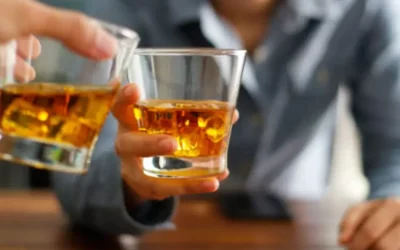Got Brain Fog? Here’s How Alcohol Affects Your Dopamine and Reward System
Content
Without the alcohol to produce enough dopamine, the person begins to experience dopamine deficiency, which is implicated in ADHD, Alzheimer’s, Parkinson’s, depression, bipolar disorder, addiction, and even schizophrenia. Over time, with more drinking, the dopamine effect diminishes until it’s almost nonexistent. But at this stage, a drinker is often “hooked” on the feeling of dopamine release in the reward center, even though they’re no longer getting it. Once a compulsive need to go back again and again for that release is established, addiction takes hold.

We found that chronic alcohol self-administration resulted in several dopamine system adaptations. Following long-term alcohol consumption, male macaques, regardless of abstinence status, had reduced dopamine release in putamen, while only male macaques in abstinence had reduced dopamine release in caudate. In contrast, female macaques had enhanced dopamine release in the caudate, but not putamen. Dopamine uptake was also enhanced in females, but not males (regardless of abstinence state).
Pharmatech: The Art of AI-Driven Drug Design with Exscientia
The participants underwent the brain scans after receiving either an alcohol drink — a cocktail of vodka, tonic, and cranberry — or a placebo drink without the vodka. Although the participants didn’t know the order in which they would receive the drinks, if they received the placebo drink first they were cued into expecting the alcohol drink next. Dopamine’s effects on neuronal function depend on the specific dopamine-receptor subtype that is activated on the postsynaptic cell. For example, different subpopulations of neurons in the striatum carry different dopamine receptors on their surfaces (Le Moine et al. 1990, 1991; Gerfen 1992). Dopamine binding to D1 receptors enhances the excitatory effects that result from glutamate’s interaction with a specific glutamate receptor subtype (i.e., the NMDA receptor4).
Drugs like Xanax and Valium (and other benzodiazopenes) increase GABA production in the brain, resulting in sedation. This, by the way, is one reason you don’t want to drink alcohol while taking benzodiazopenes; the effects will be amplified, and that can slow your heart rate and respiratory system down to dangerous levels. Alcohol directly affects brain chemistry by altering levels of neurotransmitters — the chemical messengers that transmit the signals throughout the body that control thought processes, behavior and emotion. Alcohol affects both “excitatory” neurotransmitters and “inhibitory” neurotransmitters.
Prone to binge drinking? This might be why
These studies clearly substantiated the involvement of dopamine in the reinforcing effects of alcohol and closely mimicked the findings of the preclinical studies. A series of experiments in outbred rats show that the dopamine stabilizer OSU6162 attenuates several alcohol‐mediated behaviours including voluntary alcohol intake, alcohol withdrawal symptoms and cue/priming‐induced reinstatement of alcohol seeking in long‐term drinking rats [196]. Furthermore, OSU6162 blunted alcohol‐induced dopamine output in the NAc of alcohol‐naïve rats [196], indicating that OSU6162 has the ability to attenuate the rewarding effects of alcohol. In contrast, a more recent microdialysis study conducted in long‐term drinking rats, showed that OSU6162, compared to vehicle‐pretreatment, had no significant effect on the alcohol‐induced dopamine peak [29]. The contrasting microdialysis results in alcohol‐drinking versus alcohol‐naïve rats highlight OSU6162´s ability to modulate the dopamine output dependent on the prevailing dopaminergic tone. Furthermore, these results indicate that OSU6162 might have the ability to attenuate alcohol‐mediated behaviours by counteracting the hypo‐dopaminergic state induced by long‐term drinking.
Furthermore, the trend toward decreased dopamine release in the males with no abstinence might have become significant had those subjects been put through abstinence periods like the male subjects in Cohort 3 of this study. Dopamine is a neuromodulator how does alcohol affect dopamine that is used by neurons in several brain regions involved in motivation and reinforcement, most importantly the nucleus accumbens (NAc). Dopamine alters the sensitivity of its target neurons to other neurotransmitters, particularly glutamate.
![]()
